CSCEE EXAM
PREPARATION
COURSE
Effective Supply Chain Management in Oil, Gas, and Power Generation
Effective Supply Chain Management in Oil, Gas, and Power Generation. Subject Matter Covered in the Oil & Gas Supply Chain Management:
Strategic Supply Chain Management (20%)
Supplier Partnering (20%)
Production and Inventory Control (20%)
Accounting and Performance Measurement (20%)
Organisation and Leadership (20%)
MODULE 1. FOUNDATIONAL TOPICS
What Exactly is Supply Chain Management?
- Essential Definitions
- Recent Development of Supply Chain Management
- Why Software Can’t Solve the Problem
- The Key Principles of Supply Chain Management
- An Executive’s Supply Chain Strategy Framework
The Oil and Gas Supply Chain
- The Early Days
- 1960s: Optimization
- 1970s: Technology
- 1980s-1990s: Globalization
- 2000s: Power Shift
- Leaders and Laggards
Why Supply Chain Management is Critical For The Oil And Gas Industry Today
- A Competitive Necessity
- Getting More Important
- The Bullwhip Problem
The Goal
- From No Metrics to Too Many Metrics
- Economic Value Added(EVA)
- Level 1 (CFO-Oriented) Results Metrics
- Level 2 (Functional VP-Oriented) Results Metrics
- Channel Spanning Performance Measures
What Makes Supply Chain Management Strategic
- Defining the Four Generic Supply Chain Strategies
- Configuration
- Coordination
- Improvement
- Supply Chain Strategies for Global and Regional Economic Growth
- Supply Chain Network Design
MODULE 2. SUPPLIER PARTNERING
Outsourcing
- Which Activities to Outsource and Which to Keep In-house
- Examples such as Freight Forwarding, Expediting, and More
- Unbundling Transport from The Product Price – Why and How
- Terms of Freight
Combined Purchase And Operating/Maintenance Agreements
- Economies of Scope
- Economies of Scale
- Computing an ROI
- Go-No-Go decisions
- Operating Leases
- Maintenance Contracts
- Term of Agreement
- Clauses and Conditions
- “Out” Clauses and Exit Strategies
Architecting Supplier Partnerships
- Ownership of the Inventory
- Provisioning of Spares
- Rules of Engagement with “Sister” Companies
- Transfer Prices
- Bidding Rules and Exceptions
Strategic Sourcing
- A Proven Process Map
- Spend Analysis
- Supply Market Analysis
- Category Strategies
- Standardization and Simplification of Specifications
- Managing Sourcing Events
- VMI
- Examples: Freight Forwarding, Expediting, and More
Negotiation And Partnerships
- Forming Partnerships
- Buyer vs. Supplier Leverage: Power Plays
- Open Book Negotiations
- Dealing with Core vs. Non-Core Suppliers
- Target Pricing
- Indexing Prices
- Setting Price Premiums for Customized and Expedited Services
MODULE 3. WORLD-CLASS PRODUCTION AND INVENTORY CONTROL PRACTICES
Capacity Planning
- Site Location
- Flexible Capacity Models
Throughput Analysis
- Theory of Constraints
- Assessing Facility Capacity
- Measuring Capacity Utilization
- Bottleneck Elimination Procedures
- Involving the Work Force
Just-In-Time
- Replenishment Mechanisms
- Kanban
- Integrating S&OP with JIT
- Managing Long Supply Chains in a JIT Environment
- Batch Pull
- Kitting
- Raw Materials, WIP, and Finished Goods Order Quantities
Optimal Inventory Levels And Placement
- Managing the Interfaces Between Departments such as Maintenance, Assets, Commercial, Inventory, Purchasing, Stores, Logistics, and Inspection
- Who Owns the Inventory
Sales and Operations Planning
- Managing the Interfaces Between Departments such as Maintenance, Assets, Commercial
Collaborative Inventory Management
- Multi-Echelon Inventory Planning Processes
- A Process for Building Trust
- Changing the Forecast and the Plan
- Information Systems and Support Tools
Demand Planning
- Heuristic Methods
- Moving Averages
- Exponential Smoothing
- Trend Analysis
- Econometric Models
- Delphi Method
- Multi-Characteristic Approaches
Warehousing, Storeroom and Transportation Optimization
- Storeroom Management
- Working With carriers and logistics providers
- Mode Selection
- On-Dock Operations
- Customs Clearance
- Landed Cost
Information Systems
- Company Wide Interoperability between ERP and Supply Chain Systems
- CAD/CAM
- Network Design
- SRM
- Demand Planning
- WMS
- CRM
- Cost and Pricing
- E-Commerce
- Best Practices in RFID and Barcodes
- IT/EDI/Paperless
MODULE 4. ACCOUNTING & PERFORMANCE MANAGEMENT
Finance and Accounting
- Key Process Metrics
- Additional Detailed Process Metrics
- How Much Influence Should End-Users Have on the Vendor Performance Scorecard
- How much Weight Price Should Have in the Overall Evaluation
- Best-in-Class Processes for Technical vs. Commercial Evaluation of Bids
- Structuring the Bid Process to Identify and Foster Creativity, Innovation, New Ideas and New Technologies
Risk Management
- Supply Chain Risk Factors
- 7 Steps to Mitigate Risk
- Examples of Good and Bad Risks
- Supply Chain Security
- Governmental Regulations and Compliance
Continuous Innovation
- Key Success Factors of an Innovation-Driven Supply Chain Strategy
- ROI Assessment of Innovation
- Performance Advantages of an Innovation Supply Chain Strategy
- Oil and Gas Supply Chain Best Practice and Benchmark
- Supplier Specific Benchmarks
- Technical and Commercial Evaluation
- Channel Performance Measures
- Vendor performance scorecard
- Continuous Market Feedback Loop At Customer Touch-Points
- Early Supplier Involvement
- Early Customer Involvement
Supply Market Intelligence
- Making the Business Case for a Market Intelligence Program
- Negotiating with Suppliers Based on External Information
- Monitoring Demand and Supply Conditions
- Negotiating with Suppliers Based on External Information
- Monitoring Core Suppliers’ Performance
Organizing, Training, And Developing SCM Staff
- Cross-functional project management
- Change management
- Training
- Inter-organizational psychology
Benchmarking Toward Best Practice & Performance
- Where to Get Competitive Benchmarks
- Where to Get Supplier-Specific Benchmarks
- Setting and Adjusting Targets
Perfect Program For
Organizations wanting to improve their competitive edge by providing their executives an holistic supply chain perspective in energy sector.
Anyone who wants to pursue a career in supply chain management and technology and pursue Career in Energy Sector.
Strategic Decision Makers, Managers & Planners of Production & Distribution.
Demand Planners & Inventory Controller, IT Architects in SCM.
Course Includes
36 hours Oil & Gas Supply Chain Management Workshop led by David Jacoby, President of Boston Strategies International
Study guide with all slides and exercises.
Book for each Participant: “Effective Supply Chain Management in Oil, Gas, and Power Generation”
Multiple choice exam (70% minimum pass mark)
About Course
- Pre-Requisites
None - Delivery Methodology
Face To Face - Course Language
English - Workshop & Exam Session Fee
US$ 3,995
ISCEA CONTINUING CERTIFICATION REQUIREMENTS
Your credentials with the ISCEA make you an industry expert. Therefore, ISCEA requires that all its certification holders participate in continuing education to keep up with ever changing global supply chain body of knowledge and practice. You have invested time and money to obtain the ISCEA Credential. It is up to you to protect your investment by renewing your certification with ISCEA every three (3) years.


